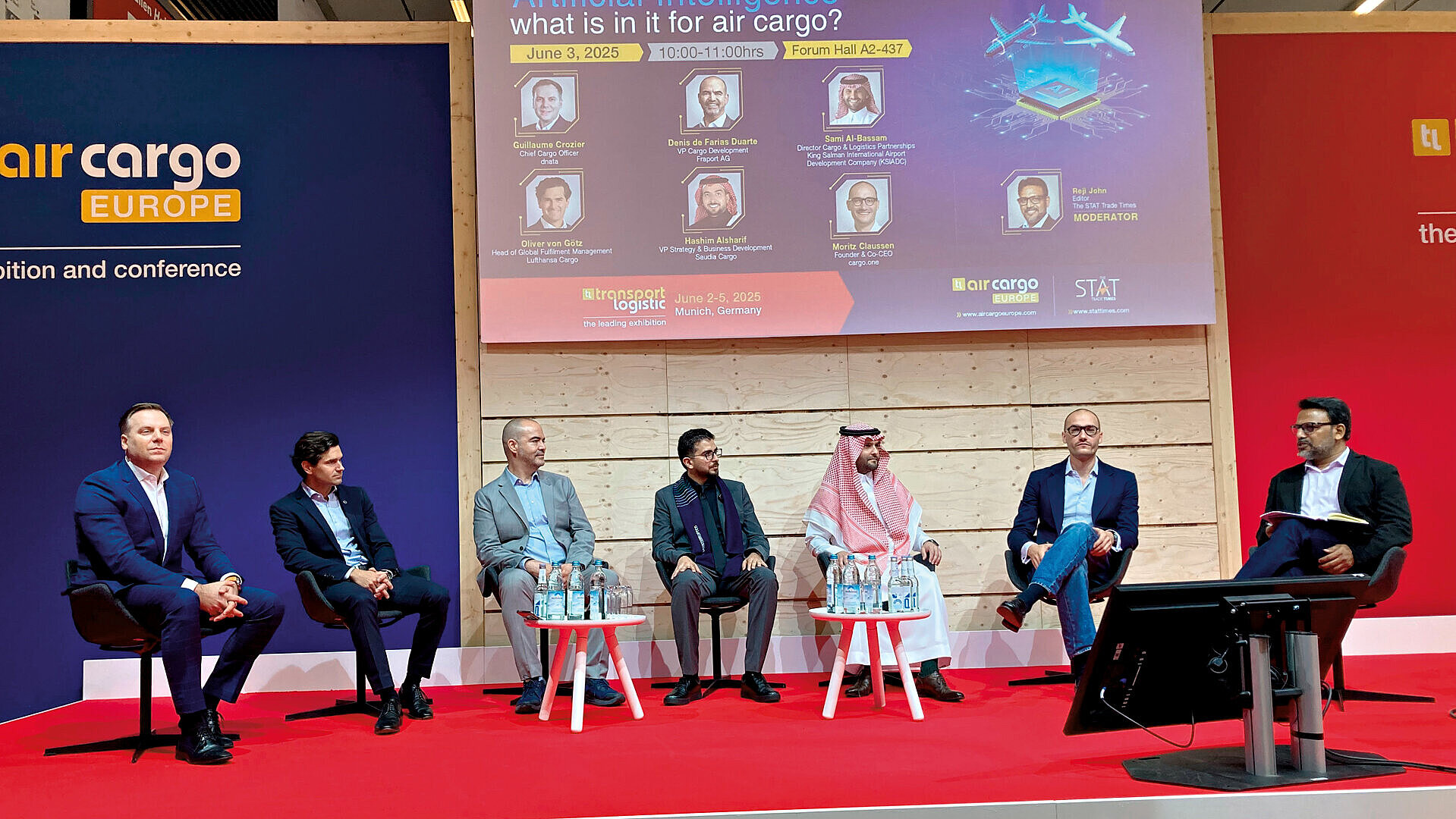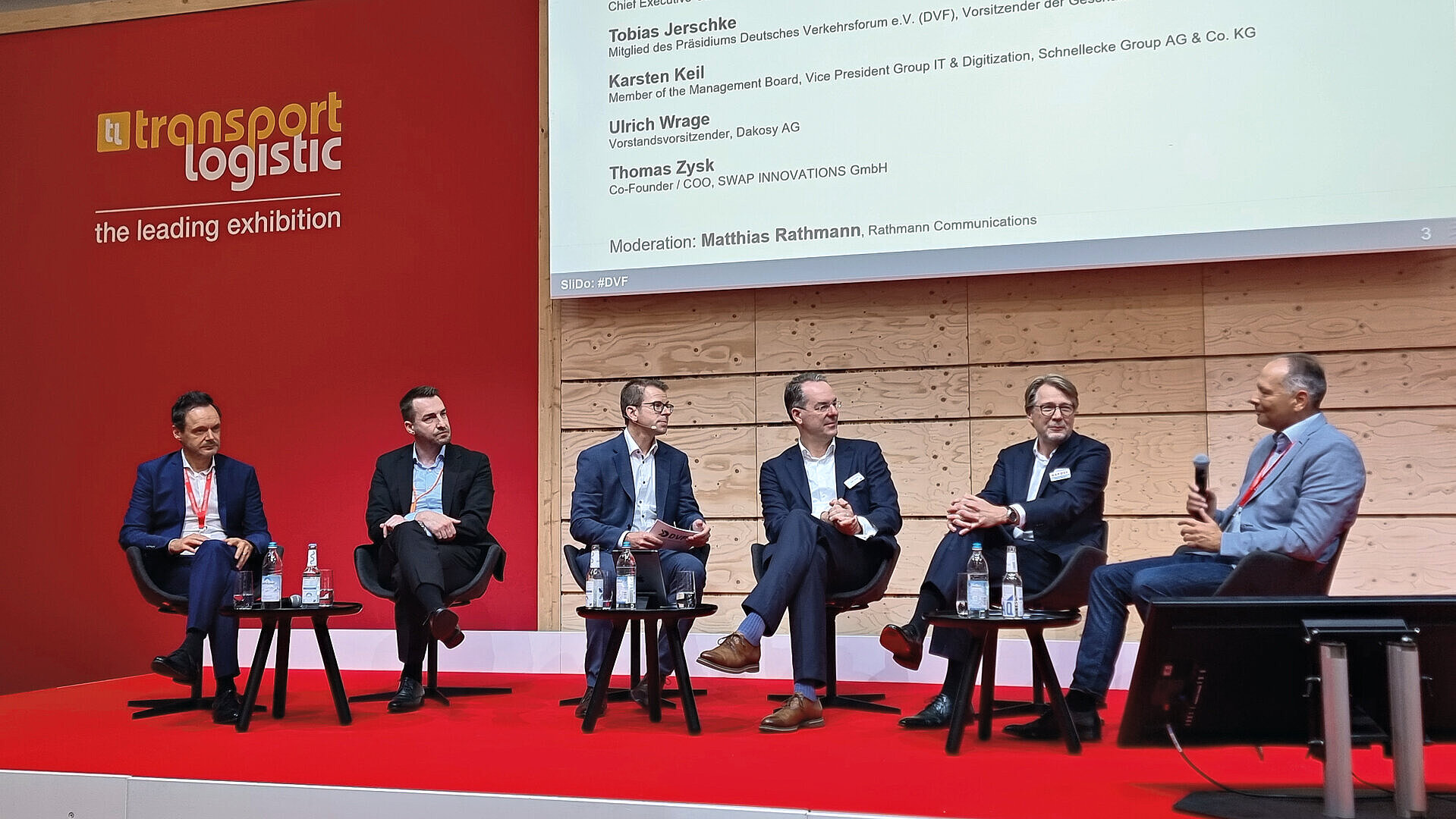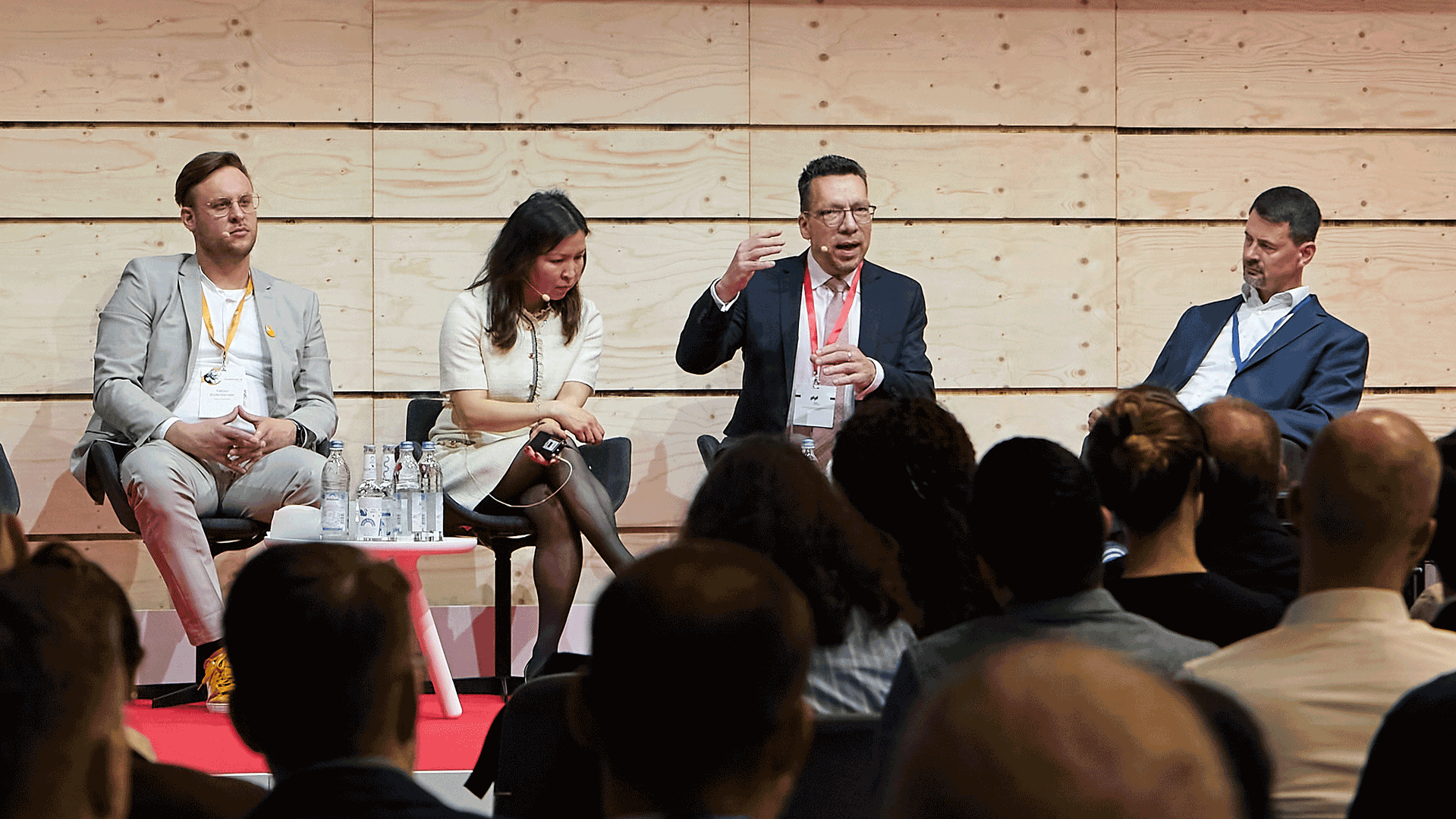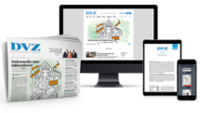
Air freight in the AI turbo

The panel discussion on ‘Artificial Intelligence - What's in it for air cargo?’ on the second day of the trade fair showed how fundamentally AI is changing air freight, but also what challenges it poses. ‘Whereas in the past, several employees had to be interviewed to analyse the market, we now get the answer immediately with the help of AI,’ reported Hashim Alsharif, Vice President Strategy & Business Development at air freight provider Saudia Cargo.
The logistics and aviation service provider Dnata (Dubai National Air Travel Agency), headquartered in Dubai, has also already optimised its production planning in Singapore in this way. In Dubai, the warehouse inventory is carried out using drones and AI, while in Amsterdam, algorithms help to allocate slots to bookings, reported Guillaume Crozier, Chief Cargo Officer at Dnata. ‘With the help of AI, we optimise time slots for deliveries, can predict peak times and make system planning for deliveries and collections more efficient,’ reported Denis de Farias Duarte, Vice President Cargo Development at airport operator Fraport.
In Duarte's view, it is particularly important to develop a digital mindset along the entire supply chain. Crozier shared this view: The ‘AI journey’ is about deriving a corresponding strategy from this mindset and a vision and then implementing it. All relevant players need to be involved and connected in order to make the processes seamless. ‘We are still struggling with this,’ says Duarte.
Oliver von Götz, Head of Global Fulfilment Management at Lufthansa Cargo, emphasised that one thing should not be lost sight of when dealing with this technology: ‘It is always important to question which specific problem needs to be solved.’ In addition, the team must be involved and a long-term vision must be presented.
Alsharif emphasised that targeted investments in data expertise and infrastructure enable the Saudi Arabian airline's cargo division to offer a continuous 24/7 service across all time zones. Moritz Claussen, founder and co-CEO of the digital real-time booking platform Cargo One, emphasised that the internal use of AI is about empowering employees and making the company more efficient overall. "The focus is on increasing efficiency - not replacing staff. Managers are called upon to identify and implement specific use cases." A key success factor is the standardisation of data. "As a platform, we are good at dealing with smaller data sets and interpreting them reliably. AI-supported tools can help to automate some of the standardisation work."
However, there are still some challenges: ‘Many of the data structures and formats currently in use are based on standards from the 1970s and 1980s,’ emphasised von Götz. Integration into the legacy systems is also important. There is still a fundamental problem: ‘We have not yet demonstrated any quick wins for customers,’ emphasised Duarte. The extent to which AI is changing the pace is already evident: ‘We used to plan for 10 to 15 years, now it's only three years,’ reported Alsharif. ‘The key to success is agility.’
The second part of the panel discussion focused on the business opportunities for air freight companies with semiconductors, whose importance continues to grow in the wake of global digitalisation and AI applications. ‘The demand is very high,’ emphasised von Götz. Although Lufthansa Cargo has specialised in spare parts for decades, there are special requirements for microchips and chemicals - for example in terms of temperature control and shock absorption - for which the company is looking for the right answers.
Alsharif has also observed a sharp rise in demand in recent years. The main focus is on safety and protective measures during handling, at the airport and in the warehouse. Duarte reported that around 200 participants had attended roadshows in India and China respectively and emphasised. ‘The exchange within the air freight industry is important.’ (cb)



